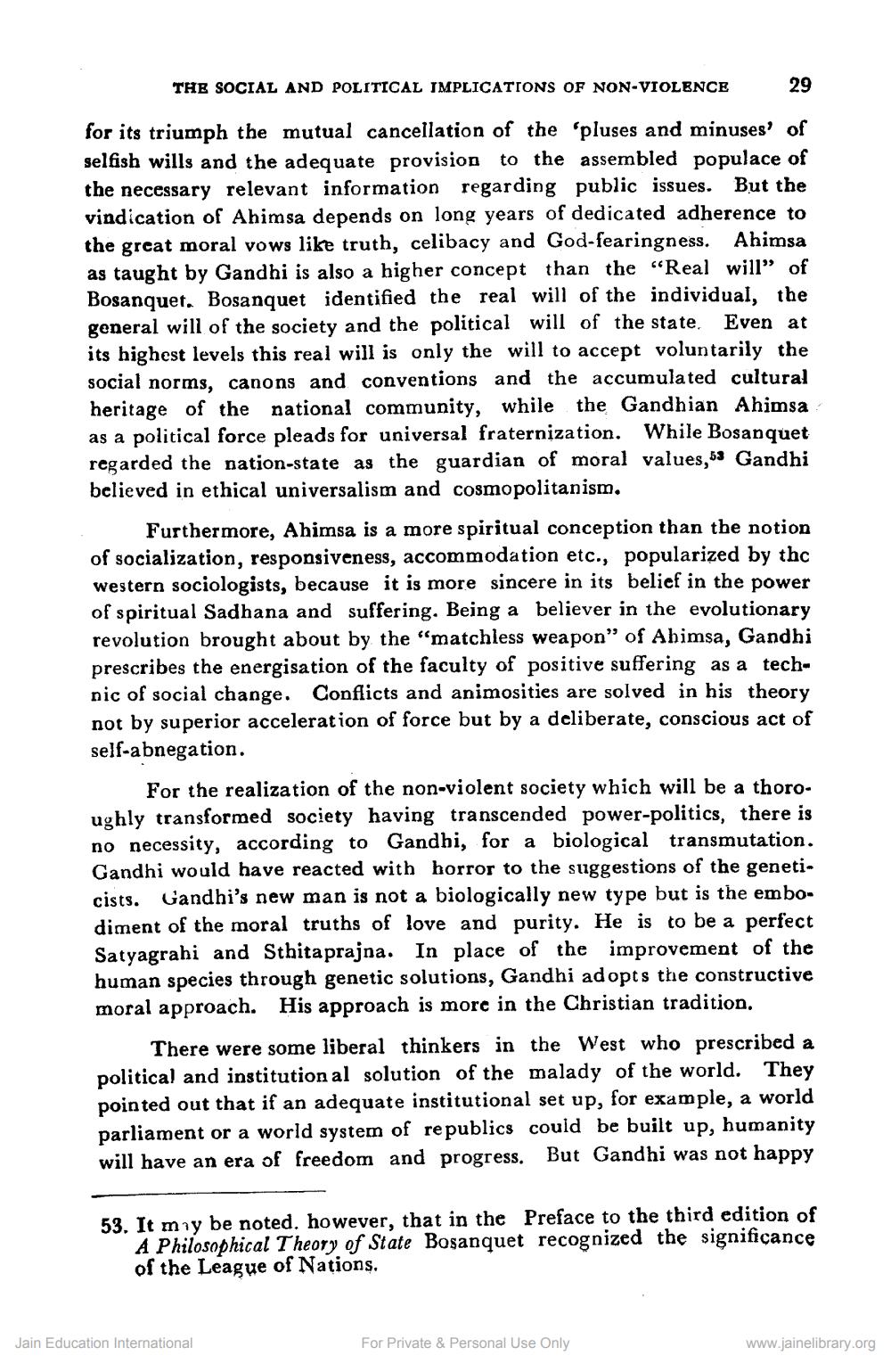________________
THE SOCIAL AND POLITICAL IMPLICATIONS OF NON-VIOLENCE
29
for its triumph the mutual cancellation of the 'pluses and minuses' of selfish wills and the adequate provision to the assembled populace of the necessary relevant information regarding public issues. But the vindication of Ahimsa depends on long years of dedicated adherence to the great moral vows like truth, celibacy and God-fearingness. Ahimsa as taught by Gandhi is also a higher concept than the “Real will” of Bosanquet. Bosanquet identified the real will of the individual, the general will of the society and the political will of the state. Even at its highest levels this real will is only the will to accept voluntarily the social norms, canons and conventions and the accumulated cultural heritage of the national community, while the Gandhian Ahimsa as a political force pleads for universal fraternization. While Bosanquet regarded the nation-state as the guardian of moral values, 53 Gandhi believed in ethical universalism and cosmopolitanism.
Furthermore, Ahimsa is a more spiritual conception than the notion of socialization, responsiveness, accommodation etc., popularized by the western sociologists, because it is more sincere in its belief in the power of spiritual Sadhana and suffering. Being a believer in the evolutionary revolution brought about by the "matchless weapon" of Ahimsa, Gandhi prescribes the energisation of the faculty of positive suffering as a technic of social change. Conflicts and animosities are solved in his theory not by superior acceleration of force but by a deliberate, conscious act of self-abnegation.
For the realization of the non-violent society which will be a thoroughly transformed society having transcended power-politics, there is no necessity, according to Gandhi, for a biological transmutation. Gandhi would have reacted with horror to the suggestions of the geneti. cists. Gandhi's new man is not a biologically new type but is the embodiment of the moral truths of love and purity. He is to be a perfect Satyagrahi and Sthitaprajna. In place of the improvement of the human species through genetic solutions, Gandhi adopts the constructive moral approach. His approach is more in the Christian tradition.
There were some liberal thinkers in the West who prescribed a political and institution al solution of the malady of the world. They pointed out that if an adequate institutional set up, for example, a world parliament or a world system of re publics could be built up, humanity will have an era of freedom and progress. But Gandhi was not happy
53. It may be noted. however, that in the Preface to the third edition of
A Philosophical Theory of State Bosanquet recognized the significance of the League of Nations.
53. Le Philosophical Theory of State B
Jain Education International
For Private & Personal Use Only
www.jainelibrary.org




